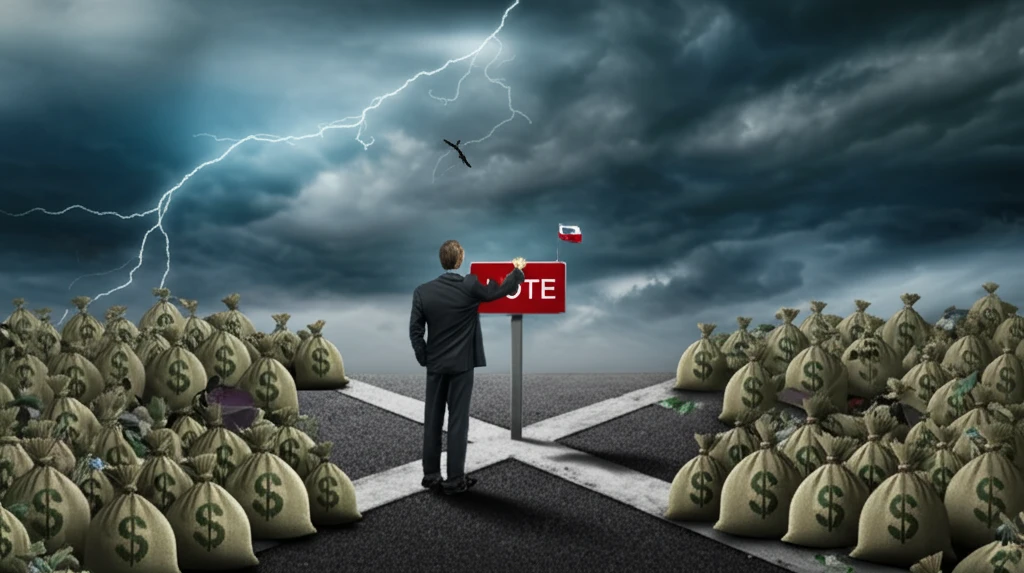
Will Your Wallet Decide the Next Election? How Economic Struggles Sway Voters
"Dive into the groundbreaking research revealing how inflation and personal financial woes are rewriting the rules of political loyalty."
In an era defined by economic uncertainty, the financial pressures felt by individuals are increasingly shaping the political landscape. Inflation, rising costs of living, and personal economic struggles are no longer just kitchen-table concerns; they're powerful forces influencing voter behavior and potentially deciding election outcomes. This article explores how these economic factors impact voting decisions, drawing on recent research to understand the shifting dynamics of voter loyalty.
Major news outlets, including Fox News, CNN, and ABC News, have consistently reported on the widespread impact of inflation, highlighting how it has affected Americans' grocery purchases and overall financial well-being. This economic strain is not occurring in a vacuum. It's influencing how people engage with politics and who they choose to support at the ballot box. Understanding this connection is crucial for anyone seeking to grasp the current political climate.
Economic voting theory posits that voters' choices are heavily influenced by the economic conditions they experience. This article delves into this theory, examining how personal economic struggles, measured through a novel Inflation Behavior Index, can override traditional party loyalty. We'll explore the nuances of pocketbook voting (how personal finances affect decisions) and sociotropic voting (how perceptions of the national economy play a role), providing a comprehensive look at the economic factors driving voter behavior.
The Inflation Behavior Index: Quantifying Economic Hardship

To better understand the impact of economic struggles on voting behavior, a new tool has been developed: the Inflation Behavior Index (IBR). This index captures the cumulative economic pressures individuals face due to inflation, measuring how they've adapted their financial behaviors in response to rising costs.
- Borrowing money to pay bills
- Cutting down on everyday spending
- Canceling or postponing major purchases
- Dipping into savings
Implications and Future Directions
This research underscores the profound impact of economic factors on voter behavior, particularly the role of personal economic struggles in overriding party loyalty. As economic uncertainty continues to be a defining feature of our times, understanding these dynamics will be crucial for political strategists, policymakers, and anyone seeking to engage with the electorate effectively. Further research, particularly with more nuanced data collection, will undoubtedly shed even more light on the complex interplay between economics and political decision-making.
